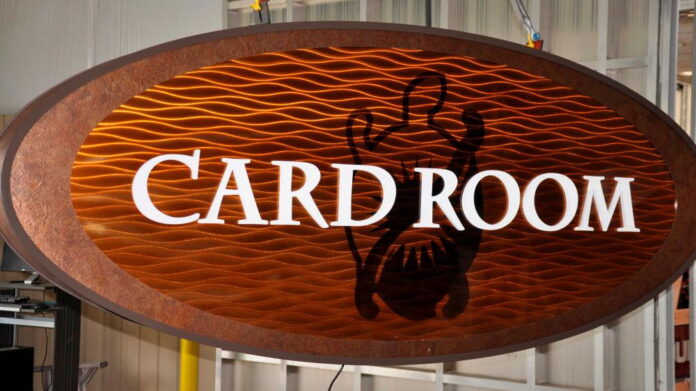On Thursday, a coalition of California Native American tribes sued dozens of California cardrooms to stop them from offering Las Vegas-style card games like blackjack, just hours after Senate Bill 549 went into effect. The law, called the “Tribal Nations Access to Justice Act,” allows tribes to dispute the legality of certain games.
The challenge could shut down card games in small, privately owned gambling halls scattered across California near urban centers. Experts believe the legal challenge could dramatically upend the state’s gambling industry.
Seven tribes, including the Agua Caliente Band of Cahuilla Indians, the Barona Band of Mission Indians, the Pechanga Band of Indians, the Sycuan Band of the Kumeyaay Nation, the Viejas Band of Kumeyaay Indians, the Yocha Dehe Wintun Nation and the Yuhaaviatam of San Manuel Nation, brought the suit, filed by the San Francisco-based law firm Keker, Van Nest & Peters.
The complaint notes that tribal-state compacts give tribes the exclusive right to run casino games, such as baccarat and blackjack, that are “banked”, meaning they result in losers paying and winners getting paid.
“For years, California card rooms and their partner third-party proposition players have ignored the law and refused to recognize tribes’ exclusive rights. Instead, they have reaped illegal windfalls by offering banked games that are barred by the California Constitution, California Penal Code, and relevant judicial decisions,” the complaint reads, as reported by The Sacramento Bee.
The lawsuit points out that card rooms have partnered with third-party proposition players, who pay for the privilege of being the banked player with its “superior odds,” and that such partners “typically do not make wagers at all, but rather take on the role of paying out all the wins and losses, whatever they may be, in other words, taking on the traditional role of the bank found in a Nevada or New Jersey casino and rendering the games banked games.”
The complaint alleges that card rooms have created gaming experiences “indistinguishable from banked games in Nevada or New Jersey.” “California card rooms have not been bashful in advertising that fact, with several rooms prominently advertising ‘Vegas-style’ gaming,” the complaint notes.

The California Gaming Association, which represents card rooms in the state, stated in response to the lawsuit that its members “are operating table games in full compliance with the law, just as they have done for decades.” The association argues that its members offer legal games reviewed and approved by the California Department of Justice, produce thousands of jobs, and pay hundreds of millions in taxes, all licensed by the state and “subject to extensive regulatory oversight.”
“This attempt by tribal casinos to shut down lawful competition by tax-paying California businesses will fail,” the association further said in the statement.
The cardroom challenge comes as more Indigenous tribes nationally assert themselves over issues of sovereignty, political representation, and how they should define who a tribal member is.
The Cherokee Nation, one of the nation’s largest Indigenous tribes, is seeking to change a 140-year-old federal law that governs criminal jurisdiction of tribal citizens on reservations based on “blood quantum.”
California is considered the birthplace of tribal casinos largely due to the 1987 Supreme Court ruling in California v. Cabazon Band of Mission Indians, which affirmed that tribes have the sovereignty to operate casinos on reservation lands that fall outside state jurisdiction.
Original article: https://www.yogonet.com/international/news/2025/01/03/90620-california-tribes-sue-dozens-of-cardrooms-to-stop-them-from-offering-lasvegas-style-card-games
















